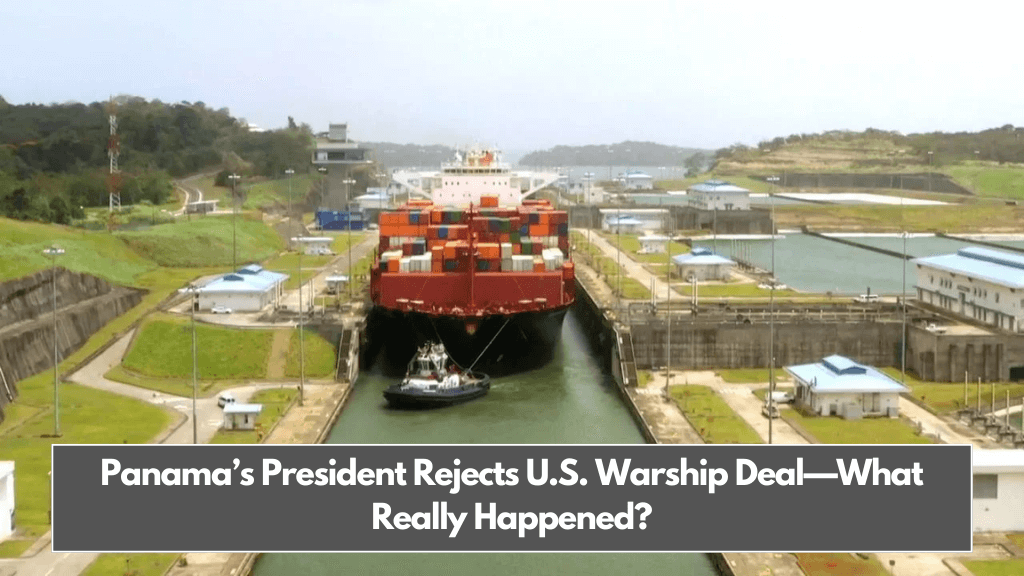Panamanian President José Raúl Mulino denied claims by the U.S. State Department that Panama had agreed to allow U.S. warships to transit the Panama Canal for free. The disagreement highlights growing tensions between the two countries, particularly over U.S. concerns about China’s influence on the strategic waterway.
U.S. State Department’s Statement Sparks Controversy
On Wednesday evening, the U.S. State Department posted a message on social media claiming that U.S. government vessels would no longer need to pay fees to transit the canal. The statement suggested that the deal would save the U.S. government millions of dollars annually.
However, Mulino rejected the statement during a press conference on Thursday, saying he was surprised and offended by the claim.
Mulino’s Response: “I completely reject that statement… It’s an important, institutional statement based on a falsity, and that’s intolerable.”
He clarified that he had told U.S. Secretary of Defense Pete Hegseth the day before that neither he nor the Panamanian government has the authority to waive fees for any nation, including the U.S.
Panama Canal Authority Backs Mulino
The Panama Canal Authority also issued a statement late Wednesday, reinforcing Mulino’s position. The authority confirmed that no adjustments had been made to the fees and that it remained open to dialogue with U.S. officials regarding military ship transits.
Canal Authority Statement: “We have not made any adjustments to the fees. We are willing to establish a dialogue with the pertinent officials from the United States.”
Mulino explained that the canal’s fee structure is protected under Panama’s constitution and legal framework, making it legally impossible to waive transit fees unilaterally.
Mulino: “It’s a constitutional limitation.”
Growing Tensions Over China’s Role at the Canal
The dispute comes amid rising U.S. concerns over China’s involvement in the Panama Canal. During a recent visit to Panama, U.S. Secretary of State Marco Rubio delivered a message from President Trump warning that China’s influence at the canal posed a threat to U.S. economic and national security.
Rubio’s statement referenced the Treaty Concerning the Permanent Neutrality and Operation of the Panama Canal, an agreement that ensures the canal remains open to international shipping without bias. The U.S. argues that China’s expanding presence at the canal could undermine this neutrality.
Mulino, however, dismissed the U.S. concerns, saying that Panama remains committed to maintaining the canal’s neutrality and ensuring it operates in accordance with international treaties.
Historical Context: U.S. Role in Building the Canal
The Panama Canal is a crucial trade route connecting the Atlantic and Pacific Oceans, facilitating about 40% of the world’s cargo ship traffic. The U.S. led its construction in the early 20th century and maintained control until 1999, when it handed over control to Panama under the terms of the Torrijos-Carter Treaties.
Since then, Panama has managed the canal through the independent Panama Canal Authority, which is responsible for setting and collecting transit fees.
The disagreement over warship transit fees underscores the growing strain in U.S.-Panama relations as both countries navigate concerns over sovereignty, international treaties, and geopolitical competition.
While the U.S. seeks greater influence over the canal to counter China, Panama remains firm on protecting its authority and independence. The coming months may see further diplomatic discussions to resolve these issues and clarify future transit agreements.
